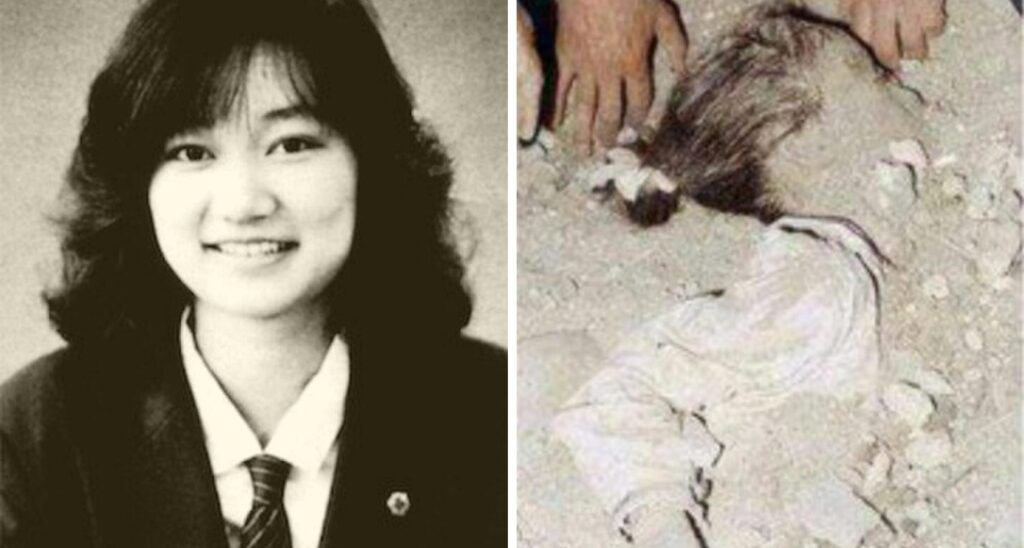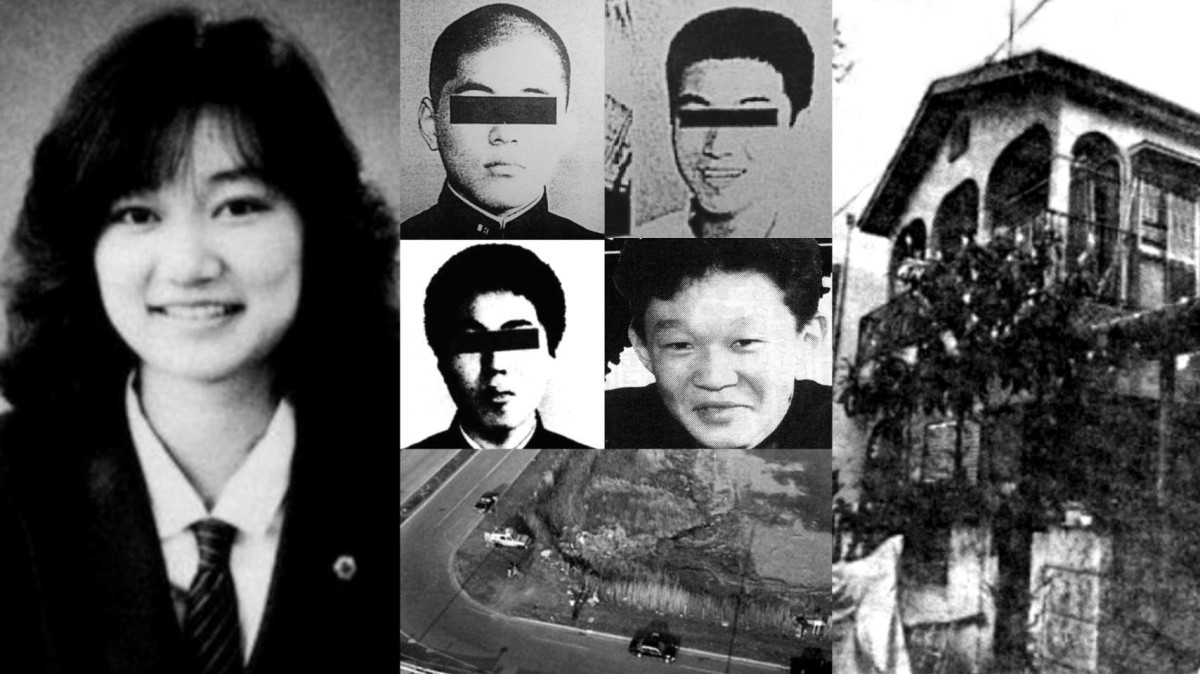Junko Furuta Case: Japan's Darkest Chapter - Uncovered
Have you ever encountered a story so horrific that it shakes you to your core, a tale of unimaginable cruelty and suffering? The name Junko Furuta is forever etched in the annals of Japanese history, a stark reminder of the darkness that can exist within humanity, and the profound impact of a tragedy that continues to resonate decades later.
This isn't just another crime story; it's a descent into the abyss, a chilling narrative that reveals the depths of human depravity. It is a story that has haunted Japan for decades, a tale of darkness, resilience, and the enduring scars left on an entire nation. The Junko Furuta case is a stark reminder of the importance of addressing the underlying causes of juvenile crime and ensuring that justice is served fairly and effectively. The case exposed significant flaws in Japan's legal and social systems, and also highlighted the resilience and determination of a society committed to learning.
| Bio Data | Details |
|---|---|
| Full Name | Junko Furuta ( ) |
| Date of Birth | 1971 |
| Place of Birth | Misato, Saitama, Japan |
| Age at Kidnapping | 17 |
| Known For | Victim of the 1988 abduction, torture, and murder case in Japan. |
| Last Seen | November 25, 1988 |
| Date of Death | January 4, 1989 |
| Additional Information | Junko Furuta was a normal teenage girl before her kidnapping. Her case brought about significant legal and social changes in Japan. |
| Reference | Wikipedia |
This is exactly what happened to Junko Furuta in November 1988. What began as a seemingly random encounter quickly spiraled into one of the most shocking and horrifying crimes in modern Japanese history. The name "Junko Furuta" has become synonymous with one of Japan's darkest and most harrowing criminal cases. Her tragic story continues to resonate decades after the events unfolded, serving as a chilling reminder of the depths of human cruelty. The Junko Furuta case remains one of the darkest and most harrowing chapters in modern Japanese history.
Born in Misato, Saitama, Japan, in 1971, Junko Furuta was, up until her kidnapping at age 17, a normal girl. A life full of promise, potential, and the ordinary joys of youth. But that life was brutally stolen, replaced by an ordeal of unimaginable suffering. On November 25, 1988, everything changed. The events surrounding her abduction and the subsequent horrors she endured are a stark reminder of the importance of awareness and vigilance. This is not just another case; it's a tragedy that continues to haunt Japan decades later.
Prepare yourself for a deep dive into one of Japan's most chilling true crime stories. The events that unfolded in the following months are difficult to read, and even more difficult to comprehend. After abducting her on November 25, 1988, a group of young men subjected her to weeks of relentless torture. Finally, on January 4, 1989, they murdered Junko Furuta, bringing her misery to an end, but leaving an indelible scar on the nation.
The abduction of Junko Furuta was the beginning of a nightmare that would last for weeks. Her story has been retold countless times, yet it never fails to shock and sadden those who hear it. The case of Junko Furuta is not only about the crime itself but also about the societal failings that allowed such an atrocity to occur. The case exposed significant flaws in Japan's legal and social systems, highlighting the need for stricter penalties for violent crimes committed by minors. Increased awareness and measures to protect children from abuse became urgent.
Through an exploration of the facts, historical context, and societal implications, this article will provide a comprehensive overview of Junko Furuta's story. By examining the dark legacy left behind, we hope to honor her memory and contribute to a deeper understanding of the importance of justice and humanity. The Junko Furuta case had a profound impact on Japanese society, prompting crucial discussions about the need for stricter penalties for violent crimes committed by minors, and the importance of increased awareness and measures to protect children from abuse.
What started as a seemingly random encounter turned into one of the most shocking and horrifying crimes in modern Japanese history. Junko Furuta's case remains one of the most infamous in Japanese history, and for good reason. This is not just a crime story; it's a chilling tale that sent shockwaves through an entire nation. But behind that name lies one of the darkest chapters in Japanese history. A story that shocked the nation and left scars that never healed. It's a tale that's as chilling as it is unforgettable. Junko Furuta's case remains etched in history as one of the darkest moments in modern Japanese society.
This chilling story continues to resonate deeply, not only because of the brutality of the crime itself, but also because of the societal context in which it occurred. The case exposed significant flaws in Japan's legal and social systems, particularly regarding the treatment of juvenile offenders and the lack of effective measures to protect vulnerable individuals. The lack of intervention by neighbors, and the lenient sentences handed down to the perpetrators, further fueled public outrage and prompted widespread calls for reform.
The investigation into Furuta's disappearance and the subsequent discovery of the truth behind her fate shook the nation. The details of the torture she endured, the sheer depravity of her captors, and the prolonged nature of her suffering were almost too much to bear. The media coverage, fueled by the public's outrage, ensured that the case remained in the public consciousness for years to come.
The aftermath of the Junko Furuta case saw significant changes in Japan's legal and social landscape. The public outcry led to a review of juvenile justice laws, aiming to impose stricter penalties for violent crimes committed by minors. Increased awareness of child abuse and the importance of safeguarding vulnerable individuals became a national priority. The case served as a catalyst for greater vigilance, prompting communities to take a more proactive role in protecting their members.
The societal impact of the Junko Furuta case extended far beyond legal reforms. It sparked widespread discussions about the values and priorities of Japanese society, prompting introspection about the factors that could contribute to such horrific acts. The case became a symbol of the importance of empathy, compassion, and the need to address the underlying causes of violence and abuse. It also served as a reminder of the critical role that communities play in protecting their most vulnerable members.
The legacy of Junko Furuta is complex and multifaceted. While her name is forever associated with unspeakable tragedy, her story has also served as a catalyst for positive change. The case has highlighted the importance of justice, humanity, and the need to learn from the darkest moments in our history. The memory of Junko Furuta continues to inspire efforts to prevent similar atrocities and to create a society where the safety and well-being of all individuals are valued above all else.
The story of Junko Furuta is a chilling reminder of the depths of human cruelty and the importance of fighting for justice. It is a story that continues to haunt Japan, but it also serves as a testament to the resilience of the human spirit and the enduring power of hope. As we reflect on her tragic fate, let us remember the importance of awareness, vigilance, and the ongoing pursuit of a more just and compassionate world.


